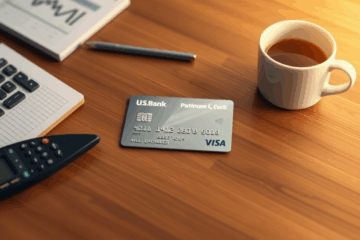Cash on Time for Family Emergencies
Emergency Cash is an essential lifeline for families navigating unforeseen financial crises.
In this article, we will explore the critical aspects of building a financial safety net specifically designed to handle emergencies such as medical incidents, urgent travel, and unexpected expenses.
By understanding the importance of establishing an emergency fund, recommended amounts for savings, and practical steps to create a cash reserve, families can empower themselves to face challenges without succumbing to debt.
Join us as we delve into strategies that ensure financial stability and peace of mind during life’s unexpected moments.
Recognizing Urgent Family Needs
When a family emergency strikes, timing is everything.
The stress of a medical crisis, an unexpected car breakdown, or an urgent trip shouldn’t be worsened by scrambling for money.
Having immediate access to cash can make the difference between staying calm and falling into chaos.
It allows families to take control of the situation without financial hesitation, ensuring that urgent decisions—like seeking treatment or making critical repairs—aren’t delayed by a lack of funds
Such situations don’t come with a warning, which is why keeping a reserve of quick-access money becomes incredibly valuable.
According to Edvisors’ breakdown on emergency readiness, emergency cash differs from a broader savings fund because it specifically serves moments of instant necessity.
It minimizes emotional pressure while preventing financial setbacks, such as high-interest debt or dipping into long-term savings, effectively supporting peace of mind during high-stress moments
- Unexpected medical bills
- Urgent home or vehicle repairs
- Last-minute travel for a crisis
Preparing Financially for the Unexpected
Preparing financially for the unexpected is crucial for maintaining stability in the face of emergencies.
By taking proactive steps, families can safeguard their financial well-being and ensure they are ready to tackle unforeseen challenges.
This guide will explore various strategies for building an emergency fund, including practical tips on how to accumulate savings and effective storage methods for quick access when needed.
Establishing an Emergency Cash Fund
Creating an emergency cash fund protects families against unexpected financial shocks by ensuring funds are always accessible.
- 1. Set a realistic goal: Start with a target of three to six months of essential expenses, as recommended by Vanguard’s emergency fund guide.
- 2. Create a budget: Track income and necessary expenses to identify what you can consistently save each month.
- 3. Allocate a fixed amount: Pay yourself first by moving money to your fund before spending elsewhere.
- 4. Automate your savings: Set up recurring transfers using tools from your bank or credit union, as explained in the Consumer Finance emergency savings guide.
Maintaining momentum is easier when the process runs automatically, and watching your fund grow boosts both confidence and security in facing life’s uncertainties.
Securing and Accessing Your Reserve
Striking the right balance between safety and accessibility is crucial when storing emergency cash.
While online savings accounts and money market accounts offer reliable protection and easy withdrawals, they can still require transfer wait times.
On the other hand, a waterproof, fireproof safe secured at home ensures immediate access during crises but poses higher risks if not well hidden.
The trade-off between these options lies in choosing between digital security and physical immediacy.
Careful planning helps minimize vulnerability from loss or theft while maintaining emergency readiness.
| Option | Access Speed |
|---|---|
| Online Savings Account | Moderate—usually 1–2 business days |
| Home Safe | Immediate |
Never disclose the location of your emergency cash to anyone who doesn’t absolutely need to know.
Responsible Ways to Tap Funds in a Crisis
During a family emergency, immediate access to cash plays a critical role in navigating urgent needs safely.
The best starting point is a dedicated emergency savings fund, which provides liquidity without debt.
However, if savings fall short, tapping into a high-yield savings account or using a money market account can allow for instant transfers and flexible withdrawal options.
Those with access to credit cards should consider credit card advances used wisely, keeping in mind to repay quickly to avoid high interest.
Trusted credit unions may also offer small emergency or hardship loans at better terms, known as PALs or Payday Alternative Loans.
According to NerdWallet’s guide to hardship loans, PALs are designed to be safer than short-term high-fee options.
If credit isn’t available, borrowing from family or friends can offer a flexible, interest-free solution, provided clear repayment terms are established.
Although fast-cash businesses may seem tempting, it’s critical to steer clear of payday lenders, which often trap borrowers in cycles of debt due to excessive fees and repayment traps.
Instead, platforms like CNBC’s top payday loan alternatives suggest paycheck advance apps or negotiating bill payment extensions.
Taking responsible steps now helps protect long-term financial stability even when life takes an unexpected turn
Maintaining Cash Resilience and Avoiding Debt
Maintaining access to ready cash is one of the smartest ways a family can shield itself from the dangers of high-interest emergency debt.
Sudden expenses—from medical costs to urgent travel—can force households without savings to rely on credit cards or short-term loans, both of which come with significant interest rates that quickly accumulate into long-term financial burdens.
According to research from the Federal Reserve Bank, families with a reliable cash buffer are much less likely to miss a rent or utility payment during a crisis.
Prevention is cheaper than recovery
By cultivating disciplined savings habits, families avoid the emotional strain and instability that comes from scrambling to fund emergencies.
Allocating just a small amount from each paycheck into an accessible savings account fosters long-term control and smarter decision-making.
The Consumer Financial Protection Bureau emphasizes that separating emergency funds from daily spending can support stronger boundaries, making it easier to avoid unnecessary withdrawals and maintain financial health.
Ultimately, the emotional value of cash on hand is equally vital as its financial function.
Having funds ready cuts decision-making time in emergencies and ensures that a family’s response isn’t delayed by borrowing or approval processes.
This readiness not only empowers timely action, but also provides families with a calm sense of financial security even under pressure.
The peace of mind that comes from knowing you’re prepared can have as much power as the money itself, making emergency readiness an essential financial strategy
Emergency Cash is more than just savings; it’s a cornerstone of financial resilience.
By prioritizing an emergency fund, families can safeguard their well-being and navigate crises with confidence.



0 Comments